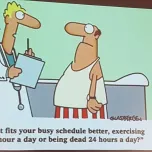On 2nd March CSH and the Ecosystems Knowledge Network delivered a Valuing Nature Programme event to ensure that tools and methods are available to demonstrate the cost-effectiveness of addressing local health priorities through increased physical activity in the natural outdoors.
The programme took diabetes as a focus and included:
- Challenges in policy and practice
- Learning from local health priorities and opportunities for improved access to the natural outdoors for the population of Birmingham
- Future research priorities
The day included 40 invited experts in public health, clinical commissioning, spatial planning, health economics, environmental economics and natural outdoor spaces with:
• keynote presentations (health economics, environmental economics) to identify current evaluation methods and opportunities for improving professional practice in the health system and the provision of natural outdoor spaces.
• Review of existing tools, methods and case studies.
• Presentation and discussion of evidence needs and opportunities in the specific case of Birmingham.
• Workshops and panel discussion of research capacity to improve methods.
There was a huge enthusiasm in the room for sharing tools and working together in practice and research.
- A policy and practice note on the event topic will be produced after the event. This will identify opportunities for changed practice and further research.
- Participants and others will be invited to follow-up meetings
It was an incredible day, chaired by Professor John Newton, Chief Knowledge Officer, and including pesentations from academic health and environmental economists alongside public health and natural environment experts, and economists from Price Waterhouse with a huge amount of energy in the room. Tweets included:
Will Evison @Will_Evison Mar 2
Brilliant multi-disciplinary effort today: #publichealth experts, env. & health economists banging heads together! @ValuingN @EcosystemsNet
cezcj @cezcj
Ewan Hamnett "as a nation we've become physically & intellectually isolated & miserable." Green spaces can address this problem #LNP16
Caroline Jessel @crjessel Mar 2
@ConnsGreenway compares well with medical interventions in terms of cost effectiveness while improving #nature #naturallyhealthy
Eg comparing the cost effectiveness of statins (drugs) with use of The Greenway – a natural outdoor walking route in Ireland – Mary Dallat found that the cost of the Greenway in preventing heart disease was much lower than the cost of statins.
Cost of statins
Men £28,000/QALY
Women £57,000/QALY
Cost of The Greenway
£18,410/DALY
Why does this matter?
Financial and carbon pressures on NHS services heighten the need to find ways to improve health using less resource. There is already strong research evidence for a connection between access to the natural outdoors and the mental and physical health of individuals and populations.
One important dimension of turning the available evidence into policy and practice is our ability to demonstrate the cost effectiveness of investment in improved access to the natural outdoors with a view to achieving health outcomes. This needs to cover both treatment and prevention of ill health, as well as the promotion of wellbeing. The investment may come from conventional healthcare and public health budgets. It may also be necessary to consider other sources, recognizing that in many ways the natural environment is already an integral part of the health system.
In response, there is a need to ensure that tools and methods for demonstrating cost-effectiveness are available to the array of decision-makers able to influence health outcomes through improved access to the natural outdoors. This includes spatial planners, public health leaders, GPs, the commissioners of clinical services, and managers of NHS Trusts and Boards.

Please log in or sign up to comment.